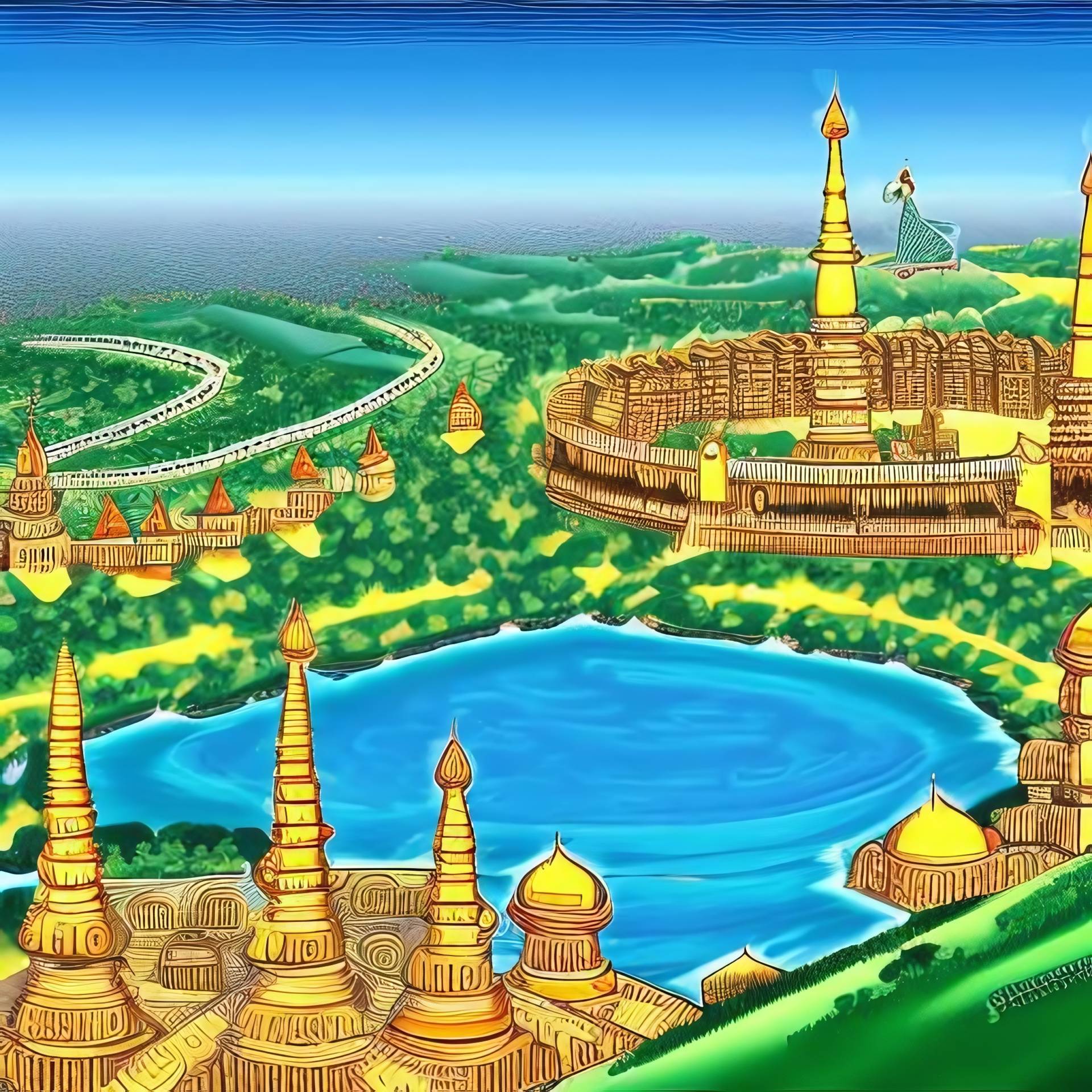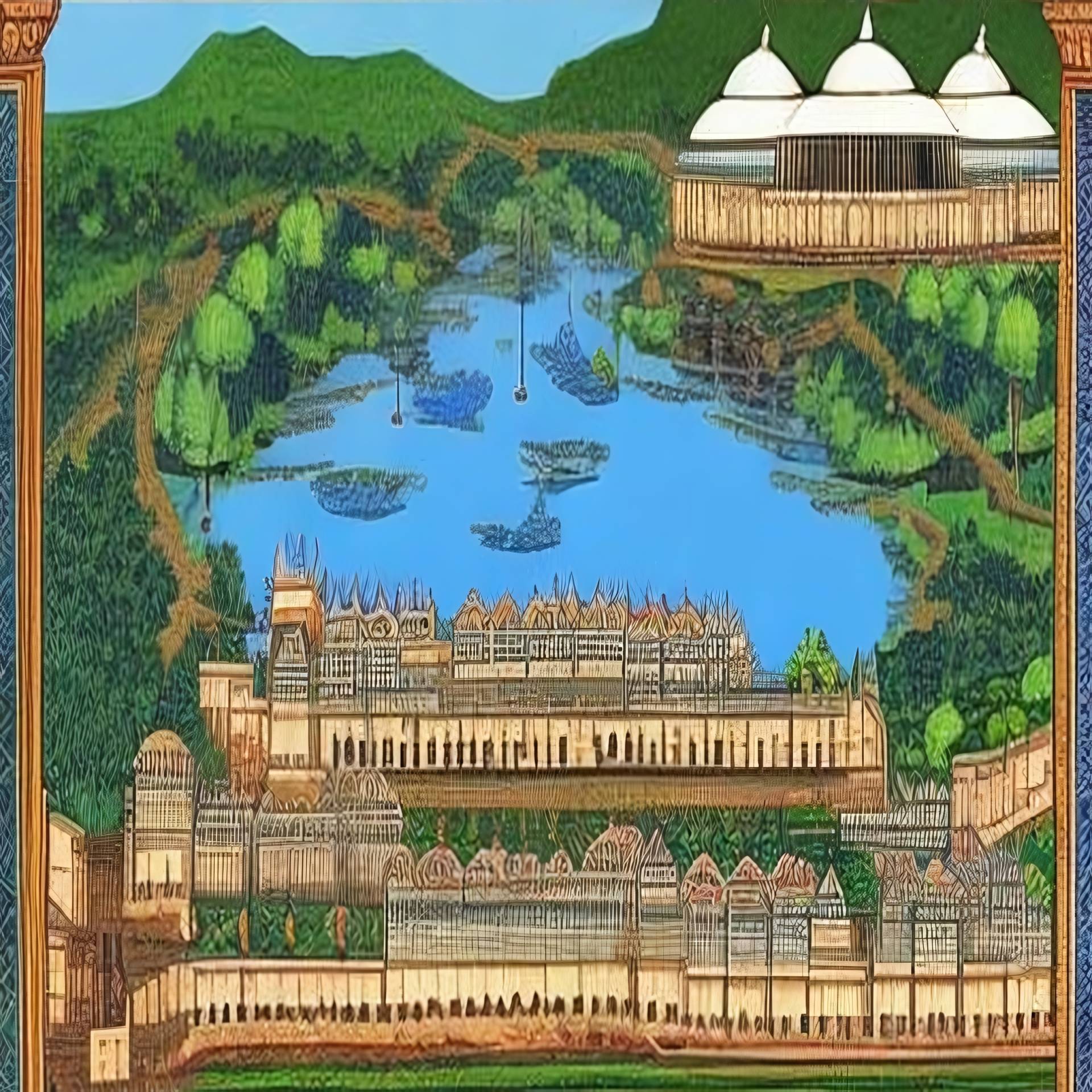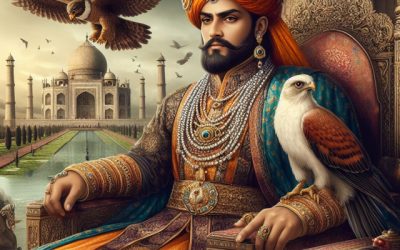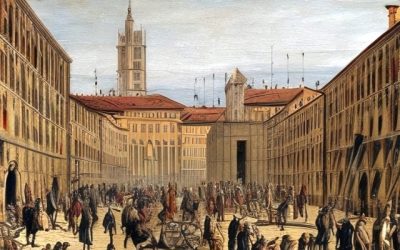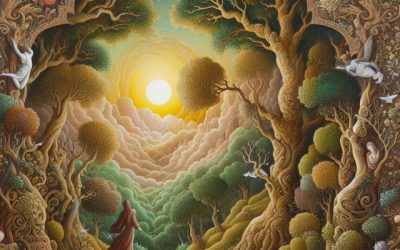The Kingdom of Nri was one of the most influential and mysterious kingdoms in the history of Nigeria. It was a medieval polity that existed as a sphere of religious and political influence over a large part of Igboland, a region inhabited by the Igbo people, one of the largest ethnic groups in Nigeria. The kingdom was ruled by a priest-king called an eze Nri, who had divine authority in religious matters and managed trade and diplomacy on behalf of the Nri people. The kingdom was also a haven for all those who had been rejected or enslaved in their communities, as it offered them freedom and protection. The kingdom did not conquer other communities by force, but rather by persuasion and conversion, spreading its culture and religion through peaceful means.
But how did this remarkable kingdom come into being? Who was its founder and what was his origin? These are some of the questions that have fascinated historians and scholars for centuries, as they try to unravel the mystery of Nri. The answer lies in the oral tradition of the Igbo people, which tells us the story of Eri, the mythical king and founder of Nri.
Eri – Diving Being from Sky
Eri was not an ordinary human being. According to some sources, he was a divine being sent by Chukwu (God) to establish civilization and religion among the Igbo people. He descended from the sky around AD 900 and settled in the area of present-day Nri, where he became the first eze Nri. He taught his people how to grow yam, a staple crop and a symbol of wealth and status in Igbo society. He also instituted the annual yam festival to celebrate the harvest and thank Chukwu for his blessings. He introduced the worship of Chukwu and his manifestations, such as Ala (the earth goddess), Anyanwu (the sun god), and Amadioha (the thunder god). He also established the Nri religion, which was based on the concept of harmony with creation and avoidance of abominations that polluted the earth. He had the power to cleanse abominations and perform rituals for fertility, prosperity, and peace.
Eri had several sons who became the ancestors of different clans and communities in Igboland. One of his sons was Agulu, who founded Aguleri, one of the oldest towns in Igboland. Agulu and his descendants built a sacred shrine dedicated to Eri in Aguleri, called Obugad temple. It was a place of pilgrimage and worship for the Umu-Eri clan, a group of people who traced their lineage back to Eri. The Umu-Eri clan included the towns of Nri, Aguleri, Umueri, Enugwu-Ukwu, Enugwu-Agidi, Nawfia, and others. They formed a common identity and culture based on their shared ancestry.
Another son of Eri was Menri, who succeeded him as the second eze Nri around AD 1043. Menri continued his father’s legacy and expanded the influence of Nri through conversion. He sent out messengers called mbùríchi to spread his authority and teachings to neighboring villages. Those who accepted became part of the Nri hegemony and adopted its customs and taboos. Menri also established Igbo-Ukwu as the capital of Nri around AD 1225, a prosperous and influential city that served as the political and cultural center of Nri. It was also the site of remarkable bronze artworks and burial ceremonies that have been unearthed by archaeologists.
The succession of eze Nris continued after Menri, following a strict lineage that traced back to Eri and Nri as part of their royal initiation. The eze Nris maintained their authority and influence over Igboland for centuries, until their decline and collapse in the 18th century, due to various factors such as the rise of other kingdoms, the Atlantic slave trade, and colonialism.
Legacy
The Kingdom of Nri may have faded away from history, but its legacy lives on in modern Igbo culture. The Nri religion still influences many aspects of Igbo spirituality and art, such as the ikenga (a carved wooden figure that represents one’s personal god or chi), uli (a decorative system used for body art), nsibidi (a pictographic system used for secret communication), igbo amaka (a syllabic system derived from Arabic script), etc. The Umu-Eri clan still exists today as one of the traditional states within Nigeria, and the eze Nri still holds a symbolic and ceremonial role as the spiritual leader of the Igbo people. The Obugad temple still stands in Aguleri as a testament to the ancient and mysterious origin of Nri.
The story of Eri and the founding of Nri is a fascinating and captivating one that reveals the rich and diverse history of Nigeria. It is a story that deserves to be told and remembered, as it shows us the roots and identity of one of the largest and most influential ethnic groups in Nigeria, the Igbo people.
References
– The Nri Kingdom (900AD – Present): Rule by theocracy. https://thinkafrica.net/nri-nigeria/
– Kingdom of Nri – Wikipedia. https://en.wikipedia.org/wiki/Kingdom_of_Nri
– Kingdom of Nri – the history of Nigeria | AFR 110: Intro to …. https://sites.psu.edu/afr110/2014/09/24/kingdom-of-nri-the-history-of-nigeria/
– List of rulers of Nri – Wikipedia. https://en.wikipedia.org/wiki/List_of_rulers_of_Nri
Tags
Divi Meetup 2019, San Francisco
Related Articles
Unappreciated Greatness
Life and Legacy of Jahangir of the Mughal Empire. Jahangir ruled over one of the largest empires in human history during his lifetime, yet few people outside of South Asia have heard of him. I aim to shed light on the life and legacy of this remarkable figure,...
The Plague Doctor’s Diary
A Personal Account of the Turin Epidemic of 1656. I am writing this diary to record my experiences and observations as a plague doctor in Turin, the capital of the Duchy of Savoy, during the terrible epidemic that has afflicted this city and its surroundings since the...
The Timeless Beauty of Bustan
Unveiling the Secrets of Saadi Shirazi's Masterpiece.In the realm of Persian literature, few works have captured the essence of love, spirituality, and morality quite like Bustan (The Orchard) by Saadi Shirazi. This 13th-century masterpiece has left a lasting impact...
Stay Up to Date With The Latest News & Updates
Explore
Browse your topics of interest using our keyword list.
Join Our Newsletter
Sign-up to get an overview of our recent articles handpicked by our editors.
Follow Us
Follow our social media accounts to get instant notifications about our newly published articles.
